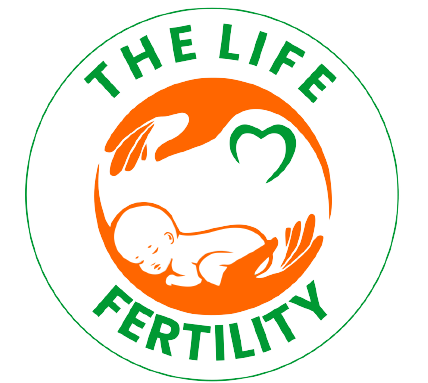Introduction
Family planning contraception are essential aspects of reproductive health that allow individuals and couples to make informed decisions about when to have children and how many children to have. Family planning refers to the process of determining the number and spacing of children through the use of various methods, while contraception refers specifically to the methods used to prevent pregnancy. These practices are crucial for promoting the well-being of individuals, families, and communities.
The importance of family planning contraception cannot be overstated. By enabling individuals to have control over their reproductive choices, these practices contribute to improved maternal and child health outcomes. When pregnancies are planned, women have the opportunity to access prenatal care early on, reducing the risk of complications during pregnancy and childbirth.
Additionally, spacing pregnancies allows women’s bodies to recover fully between pregnancies, reducing the likelihood of maternal and infant mortality.
Table of Contents
Understanding Different Contraception Methods
There are numerous family planning contraception methods available today, each with its own unique characteristics and effectiveness rates. It is important to understand these methods in order to make an informed decision about which one is most suitable for an individual or couple’s needs.
Hormonal contraception methods, such as birth control pills, patches, injections, and implants, work by altering hormone levels in the body to prevent ovulation or thicken cervical mucus, making it difficult for sperm to reach the egg. Barrier methods, such as condoms, diaphragms, and cervical caps, physically block sperm from entering the uterus.
Long-acting reversible contraception (LARC) methods, such as intrauterine devices (IUDs) and contraceptive implants, provide long-term protection against pregnancy with minimal user intervention. Natural family planning methods involve tracking menstrual cycles and avoiding intercourse during fertile periods. Emergency contraception methods can be used after unprotected sex or contraceptive failure to prevent pregnancy.
Hormonal Contraception: Types and Benefits
Hormonal contraception is one of the most commonly used methods worldwide. It offers high effectiveness rates when used correctly and provides additional benefits beyond pregnancy prevention. Hormonal contraception works by altering hormone levels in the body to prevent ovulation or create an environment hostile to sperm.
There are various types of hormonal contraception available, including birth control pills, patches, injections, and implants. Birth control pills are taken orally every day and contain synthetic hormones that prevent ovulation. Patches are applied to the skin and release hormones into the bloodstream. Injections are administered every few months and provide long-lasting contraception. Implants are small devices inserted under the skin that release hormones over an extended period.
Hormonal contraception offers benefits beyond pregnancy prevention. It can help regulate menstrual cycles, reduce menstrual cramps, and alleviate symptoms of conditions such as endometriosis and polycystic ovary syndrome. However, it is important to note that hormonal contraception may have potential side effects, such as changes in mood, weight gain, and irregular bleeding. Consulting a healthcare provider can help individuals determine if hormonal contraception is the right choice for them.
Barrier Contraception: Types and Benefits
Barrier contraception methods work by physically blocking sperm from entering the uterus. They are readily available, affordable, and offer protection against sexually transmitted infections (STIs) in addition to preventing pregnancy. Barrier methods include condoms, diaphragms, and cervical caps.
Condoms are the most widely used barrier method and are available for both males and females. They provide a physical barrier that prevents sperm from reaching the egg. Condoms also offer protection against STIs by preventing direct contact between bodily fluids.
Diaphragms and cervical caps are inserted into the vagina before intercourse to cover the cervix and prevent sperm from entering the uterus. They must be used with spermicide to increase effectiveness.
Barrier contraception methods have several benefits, including ease of use, affordability, and lack of hormonal side effects. However, they require consistent and correct use to be effective. It is important to consult a healthcare provider to ensure proper usage and to discuss any potential allergies or sensitivities to materials used in barrier methods.
Long-Acting Reversible Contraception (LARC): Types and Benefits
Long-acting reversible contraception (LARC) methods are highly effective and provide long-term protection against pregnancy with minimal user intervention. LARC methods include intrauterine devices (IUDs) and contraceptive implants.
IUDs are small, T-shaped devices inserted into the uterus by a healthcare provider. They can be hormonal or non-hormonal and provide contraception for several years. Hormonal IUDs release progestin, which thickens cervical mucus and thins the lining of the uterus, preventing sperm from reaching the egg. Non-hormonal IUDs contain copper, which creates an environment toxic to sperm.
Contraceptive implants are small rods inserted under the skin of the upper arm. They release hormones that prevent ovulation and thicken cervical mucus. Implants provide contraception for several years and can be easily removed if desired.
LARC methods offer numerous benefits, including high effectiveness rates, long-term protection, and convenience. They are suitable for individuals who desire long-term contraception without the need for daily or frequent intervention. However, it is important to consult a healthcare provider to determine if LARC methods are appropriate based on individual health considerations.
Natural Family Planning: Methods and Effectiveness
Natural family planning methods involve tracking menstrual cycles and identifying fertile periods to avoid intercourse during those times. These methods do not involve the use of hormones or physical barriers and are based on understanding the body’s natural signs of fertility.
Methods of natural family planning include tracking basal body temperature, monitoring cervical mucus changes, and using fertility awareness-based methods (FABMs). FABMs involve tracking multiple signs of fertility, such as basal body temperature, cervical mucus, and changes in the cervix.
Effectiveness rates of natural family planning methods vary depending on the method used and individual adherence. When used correctly and consistently, some FABMs can be as effective as hormonal contraception. However, natural family planning methods require commitment, regular monitoring, and a thorough understanding of fertility signs. They may not be suitable for individuals with irregular menstrual cycles or those who are unable to consistently track fertility signs.

Emergency Contraception: Types and Availability
Emergency contraception, also known as the morning-after pill, is a method used after unprotected sex or contraceptive failure to prevent pregnancy. It is not intended for regular use and should only be used in emergency situations.
There are two types of emergency contraception available: levonorgestrel-based pills and ulipristal acetate. Levonorgestrel-based pills are available over-the-counter without a prescription and should be taken as soon as possible after unprotected sex. Ulipristal acetate requires a prescription and is more effective than levonorgestrel-based pills when taken within 72 hours of unprotected sex.
Emergency contraception is not 100% effective and does not protect against STIs. It is important to consult a healthcare provider if emergency contraception is needed to discuss options, potential side effects, and follow-up care.
Factors to Consider When Choosing a Family Planning Contraception Method
When choosing a contraception method, it is important to consider personal preferences, health considerations, and lifestyle factors. Personal preferences may include factors such as ease of use, convenience, and comfort. Some individuals may prefer methods that do not require daily or frequent intervention, while others may prefer methods that offer more control over their reproductive choices.
Health considerations are also crucial when selecting a contraception method. Certain medical conditions or medications may affect the suitability or effectiveness of certain methods. It is important to consult with a healthcare provider to ensure that the chosen method is safe and appropriate.
Lifestyle factors, such as sexual activity frequency, desire for future pregnancies, and relationship dynamics, should also be taken into account. Some methods may be more suitable for individuals in long-term committed relationships, while others may be better suited for those who are not in a stable partnership.
The Importance of Consulting a Healthcare Provider
| Metrics | Importance |
|---|---|
| Preventive Care | Consulting a healthcare provider can help prevent illnesses and diseases through regular check-ups and screenings. |
| Diagnosis | Healthcare providers can diagnose and treat illnesses and diseases, which can lead to better health outcomes and quality of life. |
| Medication Management | Healthcare providers can help manage medications and ensure they are being taken correctly, which can prevent adverse reactions and improve health outcomes. |
| Chronic Disease Management | Healthcare providers can help manage chronic diseases, such as diabetes and hypertension, which can improve quality of life and prevent complications. |
| Mental Health | Consulting a healthcare provider can help with mental health concerns, such as depression and anxiety, and improve overall well-being. |
| Preconception and Pregnancy Care | Healthcare providers can provide preconception and pregnancy care, which can improve maternal and fetal health outcomes. |
| Health Education | Healthcare providers can provide education on healthy lifestyle choices and disease prevention, which can improve overall health and well-being. |
Consulting a healthcare provider is essential when considering contraception options. Healthcare providers have the knowledge and expertise to guide individuals in choosing the most appropriate method based on their unique circumstances. They can provide accurate information about the effectiveness, benefits, and potential side effects of different methods.
During a consultation, it is important to ask questions to clarify any doubts or concerns. Questions may include inquiries about the effectiveness of the method, potential side effects, how to use the method correctly, and what to do in case of missed doses or failures. Open communication with healthcare providers ensures that individuals have all the necessary information to make an informed decision.
Common Misconceptions About Contraception
There are several common misconceptions about contraception that can lead to misinformation and incorrect usage. One common myth is that contraception methods always fail, leading to unintended pregnancies. In reality, when used correctly and consistently, most contraception methods are highly effective.
Another misconception is that contraception is solely the responsibility of women. Contraception should be a shared responsibility between partners, and there are numerous methods available for both men and women.
It is also important to debunk the myth that contraception leads to infertility. The majority of contraception methods do not affect long-term fertility, and individuals can conceive shortly after discontinuing use.
Accurate information about contraception is crucial for making informed decisions and ensuring effective usage. Consulting a healthcare provider and accessing reliable sources of information can help dispel common myths and provide accurate guidance.
Conclusion
In conclusion, family planning and contraception are vital components of reproductive health that allow individuals and couples to make informed decisions about their reproductive choices. Understanding the different contraception methods, considering personal preferences, health considerations, and lifestyle factors, and consulting a healthcare provider are essential steps in choosing the most suitable method.
Hormonal contraception, barrier methods, LARC methods, natural family planning, and emergency contraception offer various options to meet individual needs. Each method has its own benefits and potential side effects, and it is important to weigh these factors when making a decision.
Dispelling common misconceptions about contraception is crucial for accurate information and effective usage. By making an informed decision about family planning and contraception, individuals can take control of their reproductive health and make choices that align with their goals and preferences. Consulting a healthcare provider for personalized advice is highly recommended to ensure the most appropriate method is chosen.


